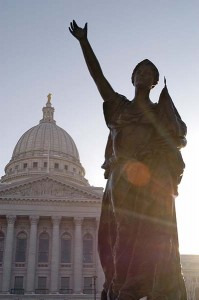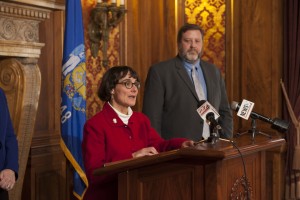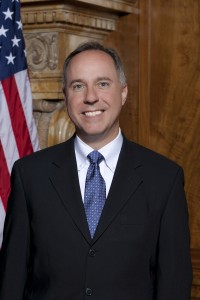 UW System Tenure Policy Task Force
UW System Tenure Policy Task Force
PROFS continues to actively follow the work of UW System’s Tenure Policy Task Force and lobby for the best possible result. PROFS met with Regent Vice President and task force chair John Behling In late November to discuss the University Committee’s proposed changes to the task force draft recommendations and share information on existing post-tenure review practices. The task force will meet again on December 23 and is expected to forward recommendations to the Regent Education Committee for action in February. Full Board of Regent action is expected in March.
Possible Health Insurance Changes
The Wisconsin Group Insurance Board recently discussed a report recommending a change to self-insurance for state employees. The report’s author, Segal Consulting, maintains the switch could save the state $42 million, but in 2012 a different consultant found the change could cost the state $100 million. The board is scheduled to meet and vote on the recommendation in February. The legislature’s Joint Finance Committee must also approve any change.
Currently state employees can choose from 18 insurers, and state employees comprise 14 percent of the state’s health insurance market. Under self-insurance, the state would pay for benefits directly and assume risk. A private insurer would likely be hired to manage the program for the state.
Wisconsin Legislature
The Legislature finished its regular floor period on November 7 and held a one-day extraordinary session on November 16. While legislators are not expected to meet again in a floor period until January 12, committees continue to meet and hold executive sessions. PROFS is monitoring and lobbying on several items, including:
Assembly Bill 305/Senate Bill 260, Limits on Scientific Research
PROFS officially registered and delivered testimony against AB 305 and SB 260, proposals that would make it illegal to provide or use for experimentation fetal body parts. If passed, the bills would criminalize the research and use of scientific material previously derived from fetal tissue. Both bills have passed out of committee but have not been scheduled for a floor vote. PROFS will continue to strongly oppose the proposals, which have far-reaching negative consequences on campus.
Assembly Bill 480/Senate Bill 363, Campus Concealed Carry
PROFS is registered against AB 480 and SB 363, legislation that would require UW System and Wisconsin Technical College System campuses to allow concealed carry of weapons in campus buildings. Current law permits concealed carry on campus grounds, but allows individual campuses to forbid weapons in buildings. PROFS is vigorously opposed to this legislation telling legislators in a statement that “we believe that making it easier for people to carry firearms and bring them onto university property would make it more dangerous for the faculty, staff and student of the University of Wisconsin.”
